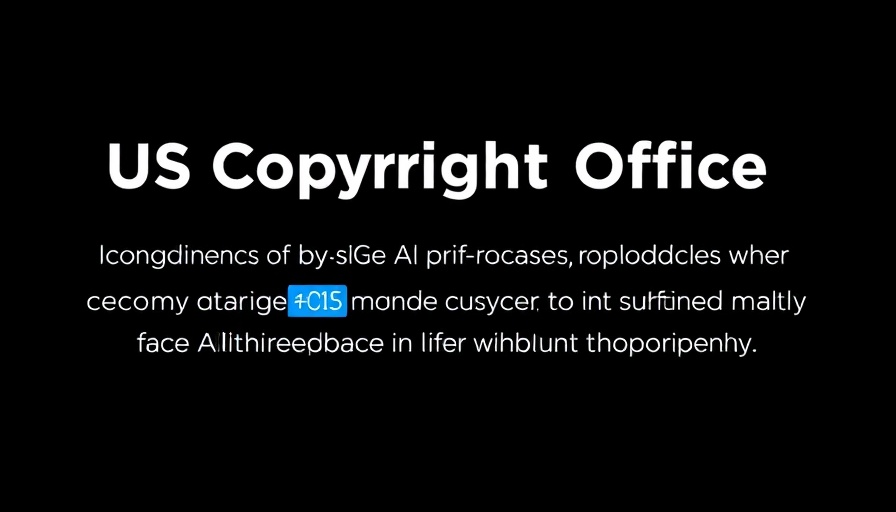
Understanding the New Copyright Guidance on AI-Generated Works
On March 2024, the US Copyright Office issued a pivotal report titled Copyright and Artificial Intelligence Part Two: Copyrightability. This report aims to clarify the murky waters of copyright law as it pertains to content produced in collaboration with artificial intelligence. Derived from extensive consultations involving over 10,000 respondents across the United States and 67 countries, this groundbreaking guidance is set to reshape how marketing executives and businesses utilize AI-driven content.
The Core of Copyright: Human Creativity
A primary takeaway from the report is the affirmation that existing copyright protections remain intact—no significant legislative changes are necessary at this time. The Copyright Office emphasizes that human creativity is essential for copyright eligibility. As outlined in the guidance, using AI as a supportive tool rather than as an independent generator maintains the possibility for copyright protection over created content. Paul Roetzer, CEO of Marketing AI Institute, cleverly summarizes this: "Now it's moving more towards: as long as you remix it enough, as long as you have enough human involvement, you can actually copyright the stuff." This establishes a new standard for businesses that wish to harness AI while maintaining legal ownership of their outputs.
The Implications for Businesses Adopting AI in Marketing
What does this mean for companies that rely heavily on AI for their campaigns? With the new guidance, marketing teams have more leeway to incorporate AI-outputs without jeopardizing copyright statuses. However, vigilance is key. Roetzer advises businesses to consult with intellectual property lawyers before making major policy changes related to AI. As marketing executives, understanding the balance between using AI tools and ensuring adequate human input is crucial to protecting intellectual property.
Best Practices for Safeguarding AI-Generated Works
With the evolving landscape of copyright law, organizations must implement robust strategies to safeguard their AI-assisted creations. It’s vital to ensure that teams using platforms like ChatGPT or generative AI comprehend the requirement for substantial human editing and creativity. This means encouraging your staff to delve deeper into the AI-generated material—adding original insights, significantly transforming content, and ensuring that the essence of creativity originates from human effort.
Moreover, businesses that utilize freelancers or agencies for deliverables created with AI-driven tools should establish clear agreements around authorship and copyright. Clients should mandate disclaimers detailing the extent of AI use in their projects, to foster transparency and mitigate potential legal complications down the line.
The Future of Copyright in an AI-Driven World
As AI technology continues to advance at a rapid pace, the Copyright Office recognizes that these guidelines may necessitate future revisions. A fundamental principle from the new report underscores the ongoing significance of human creativity. As technology evolves, it will be crucial to determine the extent to which AI influences creative expression and how that impacts ownership.
In summary, the Copyright Office's recent guidance marks a significant moment for marketing leaders and innovators. By understanding the implications of this new framework, businesses can confidently engage with AI technologies while protecting their intellectual property.
 Add Row
Add Row  Add
Add 




Write A Comment